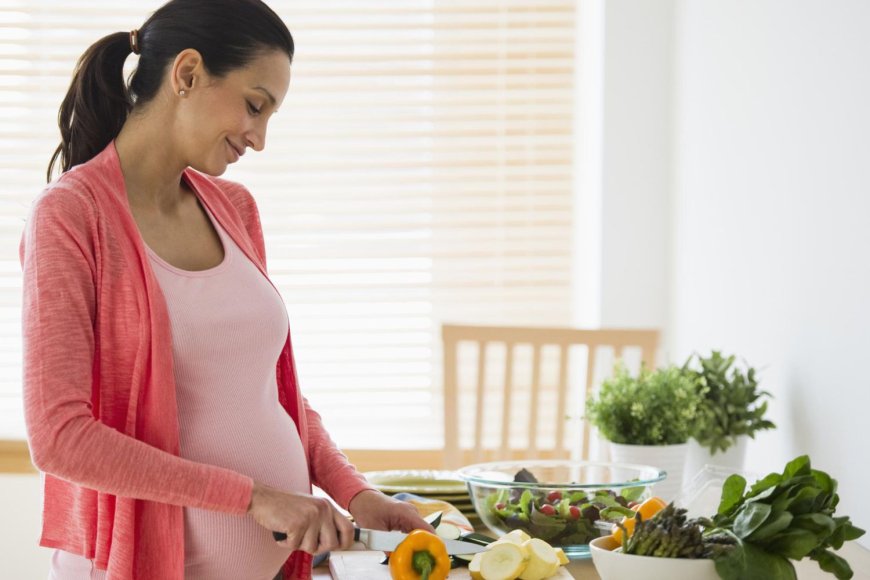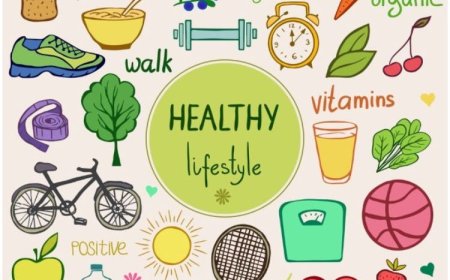Eating healthy during pregnancy
You've probably heard that your food habits can change when pregnant. That's fine! You will discover foods that you enjoy and that are good for both you and your baby. Eating nutritious foods will assist you support your pregnancy and your body's new developments. Healthy eating during pregnancy entails understanding how much to eat and which foods are nutritious. Finding a balance between eating enough nutrition for your baby's growth and maintaining a healthy weight for your and your baby's health is also important. Nutrients, such as protein, carbs, and fat, are the building blocks of the body. Discuss with your provider how you might receive the nutrients you require in your diet.

What nutrients do I require during my pregnancy to maintain both my baby and myself healthy?
You can acquire a multitude of nutrients from different sources or dietary groups throughout pregnancy, such as grains, proteins, vegetables, fruits, and dairy. Other nutrient sources include lipids, vitamins, and minerals.
Proteins aid in muscle and tissue growth, as well as the growth of your kid. Protein is found in meals such as:
- Beef, pork, fish and poultry
- Eggs
- Milk, cheese and other dairy foods
- Beans and peas
- Nuts and Seeds
- Soy products like tempeh and tofu
Carbohydrates are found in foods such as grains and serve as your body's fuel to power your activities. Carbohydrates come in a variety of forms. Foods can include a mix of all three forms of carbs.
Simple carbs are readily broken down, causing a spike in blood sugar. Limit foods heavy in simple carbs, such as:
- Table sugar
- Certain breakfast cereals
- Sugary desserts
Complex carbs, which provide longer-lasting energy, can be found in:
- Whole grain products, like bread, rice and pasta
- Beans
- Starchy vegetables like potatoes and corn
Fiber is another form of complex carbohydrate present in plant diets. Fiber can aid in digestion. Fiber-rich foods include the following:
- Vegetables such as cabbage, spinach, kale
- Fruits like, berries, oranges, apples and peaches with the skin
- Legumes such as chickpeas, black beans, lentils
Certain levels of fat are also required by your body. During pregnancy, the fats you consume provide energy and support your baby's organs and placenta. However, excessive consumption of saturated fat (found in butter, heavy cream, and high-fat foods) and trans fat (found in margarine, microwave popcorn, cookies, and pastries prepared with vegetable shortening) can be harmful to your health.
Other nutrients required during pregnancy to keep you and your baby healthy include:
Folate or Folic acid:These can help avoid neural tube defects, which are birth defects of the brain and spine in your kid. This is present in enhanced and fortified foods (such as bread, rice, and cereals), leafy green vegetables, citrus fruits, and beans and peas. The term "enriched" or "fortified" refers to the addition of a nutrient to a food product.
Calcium: This aids your baby's bone and tooth development while also keeping your body healthy during pregnancy. Dairy products, broccoli, and kale are high in calcium. Fortified cereals and liquids may also be beneficial.
Vitamin D:This is also helpful for building your baby’s bones and teeth. Good sources include fatty fish like salmon or fortified milk or orange juice.
Iron:This causes your body to produce more blood, which helps ensure that your baby receives enough oxygen. Meat and beans are good sources of iron. If you get enough Vitamin C, your body will absorb iron more easily. Orange juice, citrus fruits, and strawberries are high in vitamin C.
DHA:This is a type of fat known as an omega-3 fatty acid. This is critical for your baby's brain and visual development.
Iodine:This is a mineral that aids in the development of your baby's brain and nerves.
How much should you eat each day during pregnancy?
During the last six months of pregnancy, most pregnant women require just approximately 300 more calories per day. A glass of skim milk, two tiny crackers, and a spoonful of peanut butter have about 300 calories. The exact amount is determined by your pre-pregnancy weight. If you were underweight before to pregnancy, you may require more calories. If you were previously overweight, you may require less. Discuss your options with your provider.
Knowing how big each of these serving sizes is can be tricky. Here are some everyday items that can help:
One cup is around the size of a baseball.
A third of a cup is around the size of your hand (a rounded or full handful).
half cup is around the size of a tennis ball.
half cup is roughly the size of a golf ball.
1 tablespoon is approximately the size of 12 ping pong balls.
1 ounce of meat (chicken, hog, beef, or fish, for example) is roughly the size of two thumbs.
3 ounces of beef is around the size of a deck of cards or your palm.
A tennis ball is the size of a small fruit (orange or apple).
the amounts and foods that you may want to eat at every trimester during your pregnancy. They break down food into five groups:
- Grains. Which include bread, pasta, oatmeal, cereal and tortillas.
- Fruits. can be fresh, frozen, canned or dried
- Vegetables. can be raw, cooked, frozen, canned, dried or 100% vegetable juice.
- Dairy. include milk and products made from milk like cheese, yogurt and ice cream. While pregnant, make sure you eat pasteurized dairy foods (this means it has gone through a heating process that makes it safer to eat) and try to choose fat-free or low-fat types.
- Protein Foods. These include meat, poultry, seafood, beans, peas, eggs, tofu, nuts and seeds.
How can I eat healthy if I am a vegetarian?
- It is possible to receive the nutrients you require when pregnant if you are a vegetarian. Discuss with your provider how to receive the nutrition you and your baby require during pregnancy. Here are some useful hints:
Ensure that you consume enough protein from sources such as soy milk, tofu, and beans. If your diet permits for animal products, you can also have eggs, milk, and cheese.
Consume plenty of iron-rich vegetables and legumes such as spinach, white beans, kidney beans, and chickpeas.
If you can't have dairy, consume dark leafy greens, calcium-enriched tofu, and other calcium-enriched products like soy milk, rice milk, or orange juice.
Some grains and milk may also include in vitamin B12.
What if I have other concerns about my diet?
Some women are lactose intolerant, meaning they cannot fully digest the lactose found in dairy products. Celiac Disease prevents certain people from eating gluten (found in wheat, barley, and rye). Your provider can help you plan your diet or recommend supplements. Other healthy eating tips include:
Calcium can be found in foods such as seeds, almonds, and soy for lactose intolerant women. Lactose-free milks, cheeses, and other dairy products are also available.
Many gluten-free options are available in grocery shops for women with Celiac Disease, including a variety of fruits, vegetables, meats, potatoes, chicken, and beans.
What's Your Reaction?






















































































